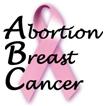National Breast Cancer Coalition Chided for Politicizing Abortion-Breast Cancer Research, Attempts to Intimidate U.S. Rep. Hostettler
The head of an international women’s group today criticized the National Breast Cancer Coalition (NBCC) for denying overwhelming biological and epidemiological evidence implicating abortion as a risk factor for breast cancer. The Evansville Courier and Press reported in a series of articles since August 16 that 11 NBCC activists met with U.S. Rep. John Hostettler (R-Ind.) to lobby for federal funding of breast cancer research and five of the eleven were offended by his suggestion that women should be informed about research linking abortion with the disease. He was falsely accused of implying they’d had abortions, although he assured the newspaper he hadn’t. The other six activists were unnamed, but Rep. Hostettler said he received a letter of apology from one expressing her dismay that the others had behaved so badly.
“We’d like to publicly thank Rep. Hostettler for his political courage,”
said Karen Malec, president of the Coalition on Abortion/Breast Cancer.
“We blame the NBCC for failing to properly educate their activists that breast cancer is a multi-factorial disease. Just as tobacco isn’t the only risk factor for lung cancer, abortion isn’t the only risk factor for breast cancer. Would these five petulant activists rather have thousands of women suffer and die because the truth has been covered-up? This attempt to politicize the research and intimidate Rep. Hostettler into silence because he dared discuss life-saving information is reprehensible, and these women should be deeply ashamed of themselves. One would have thought women claiming to be cancer survivors would want to spare other women their suffering.”
Mrs. Malec added that “The NBCC’s web page discussing the research is grossly inaccurate.” It omits all but one of the 28 out of 37 studies reporting increased risk (Reference < www.AbortionBreastCancer.com >). It omits the only comprehensive review and meta-analysis of the research, 1 the only study specifically commissioned by the National Cancer Institute, 2 the only statistically significant prospective study conducted on American women 3 and a rat study showing that aborted rats can be reliably induced to develop tumors when exposed to a carcinogen, but not rats having full term pregnancies. 4
The NBCC omits the biological explanation for the link which, by the way, no scientists challenge. The NBCC favors the severely criticized Danish study, Melbye et al. 1997, 5 in order to dismiss the 28 studies finding increased risk, despite these facts: 1) Even Melbye reported a statistically significant 89% increased risk among women who choose abortion after 18 weeks gestation; 2) Ewertz and Duffy found a more than twofold elevation in risk among Danish women (cited even in NBCC references) 6; and 3) The Danish abortion rate was shown to parallel its breast cancer rate during a 50 year period in the 20th Century.
The NBCC’s web page cites several studies in support of its position of denial of a link. 7 Yet McCredie et al. 1998 didn’t report any data on induced abortion. Calle et al. 1995 only examined the effect of spontaneous abortions. Palmer and Rosenberg have each done their own studies finding risk elevations. 8 9 In fact, Palmer et al. 1997 found a borderline significant connection. Dr. Grimes is an abortion provider. Wingo et al. 1997 revealed increased risk, but refused to acknowledge it in the study’s conclusions.
The NBCC uses recall bias theory to excuse its dismissal of the research, although no scientists today claim to have found credible evidence of this phenomenon. It mixes up induced abortions with miscarriages and treats these two very different biological events as if their effects on breast cancer risk were identical. They’re not. In the former, there is elevated risk because in normal pregnancies women are overexposed to estrogen, a known tumor promoter. In the latter, women are not generally overexposed to estrogen, so most miscarriages do not usually result in increased risk.
“Why is there such a cozy relationship between the NBCC and individuals responsible for driving up breast cancer rates?” asked Mrs. Malec. The NBCC has invited to its fundraisers former President Bill Clinton, a staunch abortion advocate; Ann Lewis, his White House counselor and a former vice president for Planned Parenthood Federation of America; and U.S. Rep. Nancy Pelosi who, while arguing in support of marketing the abortifacient drug cocktail, RU 486, during the June 1999 abortion-breast cancer debate in the House, hypocritically told her colleagues, “Medical research thrives, (when) we have free and open inquiry.”
Last month, the Lancet published a meta-analysis of 47 epidemiological studies in 30 countries in which it was concluded that breast cancer rates in developed countries could be reduced by more than half if only women would have more children and breastfeed for longer durations. 10
“It is a certainty that abortion contributes to the incidence of the disease significantly in this way,”
reasoned Mrs. Malec.
“If NBCC is really serious about its stated goal of eradicating the disease, then its officials will tell women the politically incorrect truth: that abortion has contributed to the steep climb in breast cancer cases since legalization in 1973. If NBCC’s officers lack the political courage needed to tell us the truth and insist on writing works of fiction about this research on the organization’s web page, then they have no right to demand millions of dollars for further research from taxpayers and donors.”
The Coalition on Abortion/Breast Cancer is an international women’s organization founded to protect the health and save the lives of women by educating and providing information on abortion as a risk factor for breast cancer.
- 1. Brind et al. (1996) J Epidemiol Community Health 50:481-96.
- 2. Daling et al. J Natl Cancer Inst 1994 Nov 2;86(21):1584-92.
- 3. Howe et al. Int J Epidemiol 1989 Jun;18(2):300-4.
- 4. Russo et al. Am J Pathol 1980 Aug;100(2):497-512.
- 5. Melbye et al. N Engl J Med 1997 Jan 9; 336(2):81-5.
- 6. Ewertz & Duffy (1988) Br J Cancer 68:99-104.
- 7. McCredie M, Paul C, Skegg DC, Williams S. Reproductive factors and breast cancer in New Zealand. Int J Cancer 1998;76(2):182-8. Palmer JR, Rosenberg L, Rao RS, et al. Induced and spontaneous abortion in relation to risk of breast cancer (United States). Cancer Causes Control 1997;8(6):841-9. Melbye M, Wohlfahrt J, Olsen JH, et al. Induced abortion and the risk of breast cancer. N Engl J Med 1997;336(2):81-5. Calle EE, Mervis CA, Wingo PA, et al. Spontaneous abortion and risk of fatal breast cancer in a prospective cohort of United States women. Cancer Causes Control 1995;6(5):460-8. Bartholomew LL, Grimes DA. The alleged association between induced abortion and risk of breast cancer: biology or bias? Obstet Gynecol Surv 1998;53(11):708-14. Wingo PA, Newsome K, Marks JS, et al. The risk of breast cancer following spontaneous or induced abortion. Cancer Causes Control 1997;8(1):93-108.
- 8. Palmer et al. (1997) Cancer Causes Control 8:841-9.
- 9. Rosenburg et al. (1988) Am J Epidemiology 127:981-9.
- 10. Beral V (July 20, 2002) The Lancet, Vol. 360, No. 9328.

